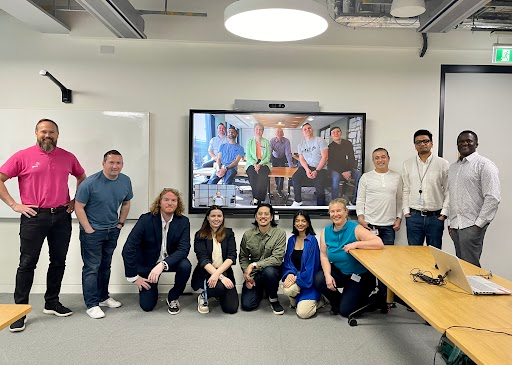
The Alliance Pillars
Social justice, inclusion and equality
Digital technologies have the potential to significantly improve outcomes for people who have been disadvantaged by providing them with better access to resources and opportunities that might otherwise be out of reach. They can help organisations supporting these groups to increase their reach, their impact and their effectiveness. Remote delivery of services can make healthcare and other services more accessible, especially for individuals in remote or underserved areas. Additionally, technologies like AI and data analytics can be used to identify and address disparities in various sectors, leading to more equitable service delivery and resource allocation. These technologies not only connect disadvantaged individuals to essential services but also create pathways for their voices and needs to be recognised and addressed in policymaking and through social initiatives.
Skills, talent development and access to opportunity
The development of digital technology skills is crucial in today’s world, as it opens up a multitude of opportunities and benefits for both individuals and society. For individuals, these skills enhance employability in a rapidly evolving job market where digital proficiency is increasingly demanded. This knowledge not only improves career prospects but also fosters personal growth and empowerment through access to resources for learning and self-improvement. On a societal level, widespread digital literacy drives innovation and economic growth. It enables a more informed community, capable of engaging with digital platforms for communication, advocacy, and education. Moreover, digital skills facilitate the bridging of global and cultural gaps, fostering collaboration and understanding in a connected world. Thus, the development of digital technology skills is a key factor in shaping a progressive, informed, and dynamic society.
Environment and climate change
Digital technologies play a crucial role in enhancing our understanding of and response to the climate emergency. Data analytics and climate modelling software enable more accurate prediction of climate patterns, providing vital information on how and where climate change will impact the world. AI and machine learning tools are instrumental in analysing vast amounts of environmental data, leading to more informed decision-making. These technologies also facilitate the development of sustainable practices and initiatives in areas such as the circular economy. Digital platforms are powerful tools for disseminating information about the climate crisis, mobilising communities, and promoting sustainable practices. Digital technologies are indispensable in both understanding and combating climate change, empowering individuals and organisations to develop and implement effective solutions.
Case Studies
Soundscape
Soundscape is a mobile app based on code developed and released by Microsoft under an open source licence. It uses 3D audio technology to support people with visual impairment, providing contextual information in outdoor areas that allows the visually-impaired to orient themselves and navigate with confidence, helping them to achieve greater independence in their daily lives.
CAKE - Supporting health staff
CAKE is an interactive resource designed to support professionals in the workplace. It was designed as a resource that would support nurses working in the community to cope with Secondary Psychological trauma and uses creative storytelling techniques to promote self-care and team wellbeing.
dressCode Lesson Starters
The dressCode lesson starter tool is a searchable, web-based application, which allows computer science teachers to access and present free lesson starter exercises in their classes. The tool provides a wide variety of exercises and quizzes that computing science teachers can use to engage their students at the start of a class and to stimulate their interest in computing science more widely.
Early career experience
Early career technologists find the opportunity to gain experience by participating as volunteers in tech for good projects both rewarding and motivating and that the opportunity to work alongside more experienced volunteers helps them to build a network in the tech industry.
Low carbon donation platform
Working in collaboration, the Scottish Tech Army (STA), NatWest and GoCodeGreen built a low carbon impact charity donation platform in support of the humanitarian crisis created by the war in Ukraine. The project demonstrated how a common purpose, doing good and having sustainability at the heart of delivery is possible.
Bioregioning - interactive map
A Bioregion is a geographic area defined not by political or economic boundaries but through its natural features. In this example, GIS technology is used to help to visualise the components of a bioregioning programme, highlighting the environmental impact of the projects being delivered.







